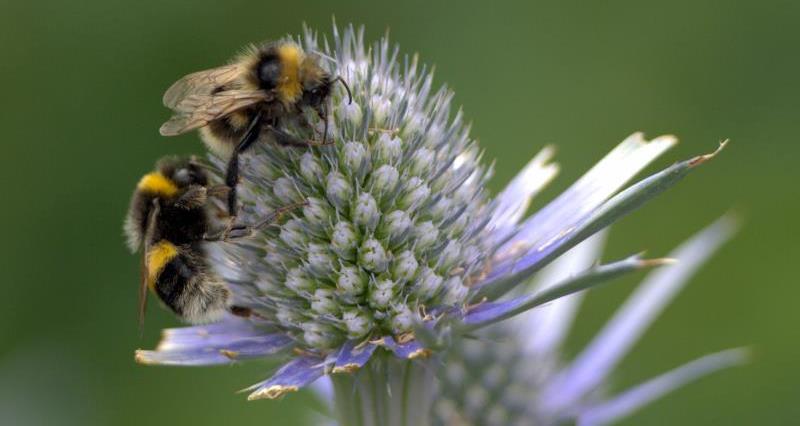Our pollinators are in decline; in fact the population has fallen by 50% in the last 50 years. Bees play a vital role in biodiversity through pollinating flowers and plants, but not all of these insects can easily find food and shelter.
Defra’s Lords Spokesman, Lord Gardiner of Kimble, said:
“It is clear we care about bees—now we need to make sure we translate that concern into real action to protect our precious pollinators. Everyone can play their part to ensure bees have food and a home, from urban window box gardeners to farmers protecting the wildlife around their fields. You do not have to be an expert gardener to make a difference: our Bees’ Needs campaign sets out five simple actions we can all take to help pollinators thrive, like cutting grass less often or planting pollinator-friendly flowers.”
Stephen Trotter, Director for The Wildlife Trusts England, said:
“Bees’ Needs Week is a great way of doing something positive for this important group of insects. Bees are fascinating and beautiful in their own right and they also do lots of work that benefits people, for free. There’s much more to bees than making honey. I’ll be building a bee hotel but whatever you do, everyone can make a real difference to the future of these charming animals.”
5 simple Bees Needs
Defra and the Wildlife Trusts have teamed up to publish five simple actions that we can all do to help make our environment more pollinator friendly:
- Grow more flowers, shrubs and trees
- Let your garden grow wild
- Cut grass less often
- Don’t disturb insect nests and hibernation spots
- Think carefully about whether to use pesticides
Defra Pollinators in numbers
1500 species of insects pollinate plants in the UK
25 species of bumble bee, 260 species of solitary bee, 1 honey bee live in the UK
70 of the 100 crop species that provide 90% of food worldwide are pollinated by bees
6.5kg of ‘Whitehall honey’ produced by the first yield from Defra’s beehives in 2015
Find out More
Why not follow #BeesNeeds on Twitter to find out about Bees Needs week, which is running until 17 July and tweet your questions to bee experts!
The Campaign for the Farmed Environment is hosting a number of events this week. Find out about them via the Countryside Magazine website
